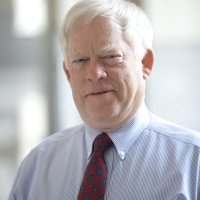
A blog of the Indo-Pacific Program
President Trump has doubled down on U.S. policy toward Pakistan. On New Year’s Day, before most of us were even out of bed, Trump fired off a seemingly out-of-the-blue Twitter blast at Pakistan, accusing America’s problematic ally of giving us “nothing but lies & deceit.” Pakistan provides “safe haven to the terrorists we hunt in Afghanistan, with little help. No more!”
Three days later, the State Department announced the suspension of all U.S. security assistance to Pakistan. Some reports put this figure as high as $2 billion. At the same time, in a seemingly unrelated but probably coordinated move, the department also put Pakistan on a watch list for failing to uphold religious freedom or protect its religious minorities.
The purpose of these steps, administration officials explained, was not to punish Islamabad, but to give it incentives for better behavior. But if this is the case, Washington is likely to be disappointed. The United States, as the strongest country in the world, has the power to punish, but not necessarily to compel.
That, in a nutshell, is precisely what my new book, The Leverage Paradox, is about: how to turn U.S. strength, through a combination of inducements and punishments, into diplomatic leverage.
This book started out as an American asking a typically American question: Why is the United States so often unsuccessful in using its immense strength to achieve favorable diplomatic results? Why is it so difficult for the United States to turn its power into leverage against other, usually weaker states? I use the difficult but important U.S.-Pakistan relationship as a case study to shed light on these larger questions involving power and leverage.
As I dug deeper into the relationship between power and leverage, however, something I had not anticipated happened: it became apparent that focusing solely on American power missed half the story. To look at Pakistan primarily as a passive target of American power—as a country the United States sought to leverage—obscured the way in which Pakistan has maneuvered Washington for its own purposes—indeed, seemingly wielded leverage over the far stronger United States. Leverage, it turns out, is a two-way street.
Donald Trump believes in leverage. But so too did his White House predecessors. And so too do most Americans. Whether we consciously realize it or not, most of us assume some sort of direct correlation between a country’s overall strength—as measured by population size, GDP, military budget, number of nuclear warheads, and the like—and its ability to entice or compel other countries to act in specific ways—in other words, its leverage. Big countries, strong countries are able to use their power as diplomatic leverage—it seems axiomatic.
Yet, it’s not as easy to turn power into leverage as this assumption would lead one to believe. If it were, the Castro brothers would not have been a thorn in the American side for more than half a century. And Kim Jong-un would not be thumbing his nose at us from Pyongyang.
While I’m not delusional enough to imagine this would ever happen, I do wish Trump had thumbed through this book before he acted several weeks ago.
Had he been even remotely familiar with the story I tell there, and with my arguments about leverage and how to use power as leverage, he would have understood that practically the worst thing you can do if you seek to persuade Pakistanis to act in a certain way is to publicly call them liars and knaves. He would have realized the foolishness of believing that because Islamabad has received American financial assistance, this somehow obligates Pakistan to take steps it deeply believes are contrary to its own security. And he would have known that the United States has a long history of suspending its assistance programs to Pakistan, and that in no instance have these punitive actions compelled Pakistan to alter its policies in any fundamental way.
Many Americans will applaud the toughening of U.S. policy announced in early January. Despite its denials, the evidence that Pakistan has been playing a double game with Washington—claiming it’s “all in” in the war against terrorism, while quietly providing safe havens and in other ways supporting militants targeting U.S. forces in Afghanistan—is compelling.
It may well be time to dial back our relationship with Islamabad. But don’t expect this to produce a more compliant Pakistan.
Trump’s approach, as exemplified in his January 1st tweet and in the aid suspension, displays little appreciation for either Pakistani realities, or for the psychology of those who feel they are being bullied and humiliated. To the contrary, it underscores the extent to which the administration fails to understand the art of turning power into leverage.
There’s nothing nefarious about leverage—it’s a routine component of diplomacy. It is part of the diplomatic toolkit for persuading other governments to act in ways desired by the country exercising leverage. As such, it has a relevance that extends far beyond the U.S.-Pakistan relationship.
If the 70-year history of Pakistan-U.S. relations is any guide, however, at the heart of leverage lies a surprising paradox. Even though it’s coercive, leverage should be more about seduction than compulsion—drawing upon relationships, creating obligation, fostering a sense of shared purpose. Leverage should be about making the other side want to satisfy you, not trying to force it to do so. Indeed, the most effective use of leverage occurs when the target barely realizes it is being leveraged.
Pakistan has bedeviled American policymakers for many decades. It is likely to continue to do so in the years ahead. The underlying interests and priorities of the two countries simply don’t line up.
Yet Pakistan is too big and too central to the achievement of important American objectives for us to walk away. We need to continue to engage with Islamabad, even as we know that engagement will not always produce agreement. That’s why we need to be smarter in dealing with Pakistan. Understanding how to use leverage effectively, but also appreciating the limits of leverage, would be a good place to start.
Click here to read an exclusive excerpt from The Leverage Paradox
You can download The Leverage Paradox at the Asia Program's website. To request a hard copy, please email asia@wilsoncenter.org.
The views expressed are the author's alone, and do not represent the views of the U.S. Government or the Wilson Center. Copyright 2018, Asia Program. All rights reserved. Image Source: Shutterstock/Asianet-Pakistan. For Editorial Use Only.
Author

Former Director, Asia Program, Woodrow Wilson Center; Former Public Policy Fellow, Woodrow Wilson Center

Indo-Pacific Program
The Indo-Pacific Program promotes policy debate and intellectual discussions on US interests in the Asia-Pacific as well as political, economic, security, and social issues relating to the world’s most populous and economically dynamic region. Read more





